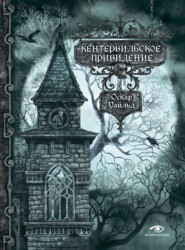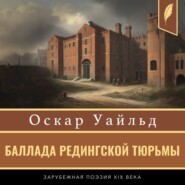По всем вопросам обращайтесь на: info@litportal.ru
(©) 2003-2024.
✖
Essays and Lectures
Настройки чтения
Размер шрифта
Высота строк
Поля
And the Hermit looked at him and pitied him. But he spake not a word. For he knew that he who speaks a word loses his faith.
And one morning, as the young man returned with his hands full of purple and pearls, he stopped and frowned and stamped his foot upon the sand, and said to the Hermit: ‘Why do you look at me ever in this manner as I pass by? What is it that I see in your eyes? For no man has looked at me before in this manner. And the thing is a thorn and a trouble to me.’
And the Hermit answered him and said, ‘What you see in my eyes is pity. Pity is what looks out at you from my eyes.’
And the young man laughed with scorn, and cried to the Hermit in a bitter voice, and said to him, ‘I have purple and pearls in my hands, and you have but a mat of reeds on which to lie. What pity should you have for me? And for what reason have you this pity?’
‘I have pity for you,’ said the Hermit, ‘because you have no knowledge of God.’
‘Is this knowledge of God a precious thing?’ asked the young man, and he came close to the mouth of the cavern.
‘It is more precious than all the purple and the pearls of the world,’ answered the Hermit.
‘And have you got it?’ said the young Robber, and he came closer still.
‘Once, indeed,’ answered the Hermit, ‘I possessed the perfect knowledge of God. But in my foolishness I parted with it, and divided it amongst others. Yet even now is such knowledge as remains to me more precious than purple or pearls.’
And when the young Robber heard this he threw away the purple and the pearls that he was bearing in his hands, and drawing a sharp sword of curved steel he said to the Hermit, ‘Give me, forthwith this knowledge of God that you possess, or I will surely slay you. Wherefore should I not slay him who has a treasure greater than my treasure?’
And the Hermit spread out his arms and said, ‘Were it not better for me to go unto the uttermost courts of God and praise Him, than to live in the world and have no knowledge of Him? Slay me if that be your desire. But I will not give away my knowledge of God.’
And the young Robber knelt down and besought him, but the Hermit would not talk to him about God, nor give him his Treasure, and the young Robber rose up and said to the Hermit, ‘Be it as you will. As for myself, I will go to the City of the Seven Sins, that is but three days’ journey from this place, and for my purple they will give me pleasure, and for my pearls they will sell me joy.’ And he took up the purple and the pearls and went swiftly away.
And the Hermit cried out and followed him and besought him. For the space of three days he followed the young Robber on the road and entreated him to return, nor to enter into the City of the Seven Sins.
And ever and anon the young Robber looked back at the Hermit and called to him, and said, ‘Will you give me this knowledge of God which is more precious than purple and pearls? If you will give me that, I will not enter the city.’
And ever did the Hermit answer, ‘All things that I have I will give thee, save that one thing only. For that thing it is not lawful for me to give away.’
And in the twilight of the third day they came nigh to the great scarlet gates of the City of the Seven Sins. And from the city there came the sound of much laughter.
And the young Robber laughed in answer, and sought to knock at the gate. And as he did so the Hermit ran forward and caught him by the skirts of his raiment, and said to him: ‘Stretch forth your hands, and set your arms around my neck, and put your ear close to my lips, and I will give you what remains to me of the knowledge of God.’ And the young Robber stopped.
And when the Hermit had given away his knowledge of God, he fell upon the ground and wept, and a great darkness hid from him the city and the young Robber, so that he saw them no more.
And as he lay there weeping he was ware of One who was standing beside him; and He who was standing beside him had feet of brass and hair like fine wool. And He raised the Hermit up, and said to him: ‘Before this time thou hadst the perfect knowledge of God. Now thou shalt have the perfect love of God. Wherefore art thou weeping?’ And he kissed him.
notes
1
Plato’s Laws; Æschylus’ Prometheus Bound.
2
Somewhat in the same spirit Plato, in his Laws, appeals to the local position of Ilion among the rivers of the plain, as a proof that it was not built till long after the Deluge.
3
Plutarch remarks that the only evidence Greece possesses of the truth that the legendary power of Athens is no ‘romance or idle story,’ is the public and sacred buildings. This is an instance of the exaggerated importance given to ruins against which Thucydides is warning us.
4
The fictitious sale in the Roman marriage per coemptionem was originally, of course, a real sale.
5
Notably, of course, in the case of heat and its laws.
6
Cousin errs a good deal in this respect. To say, as he did, ‘Give me the latitude and the longitude of a country, its rivers and its mountains, and I will deduce the race,’ is surely a glaring exaggeration.
7
The monarchical, aristocratical, and democratic elements of the Roman constitution are referred to.
8
Polybius, vi. 9. αὔτη πολιτειῶν ἀνακύκλωσις, αὔτς φύσεως οἰκονομία.
9
χωρὶς ὀργῆς ἢ φθόνου ποιούμεηος τὴν ἀπόφασιν.
10
The various stages are σύστασις, αὔξησις, ἀκμή, μεταβολὴ ἐις τοὔμπαλιν.
11
Polybius, xii. 24.
12
Polybius, i. 4, viii. 4, specially; and really passim.
13
He makes one exception.
14
Polybius, viii. 4.
15
Polybius, xvi. 12.

















